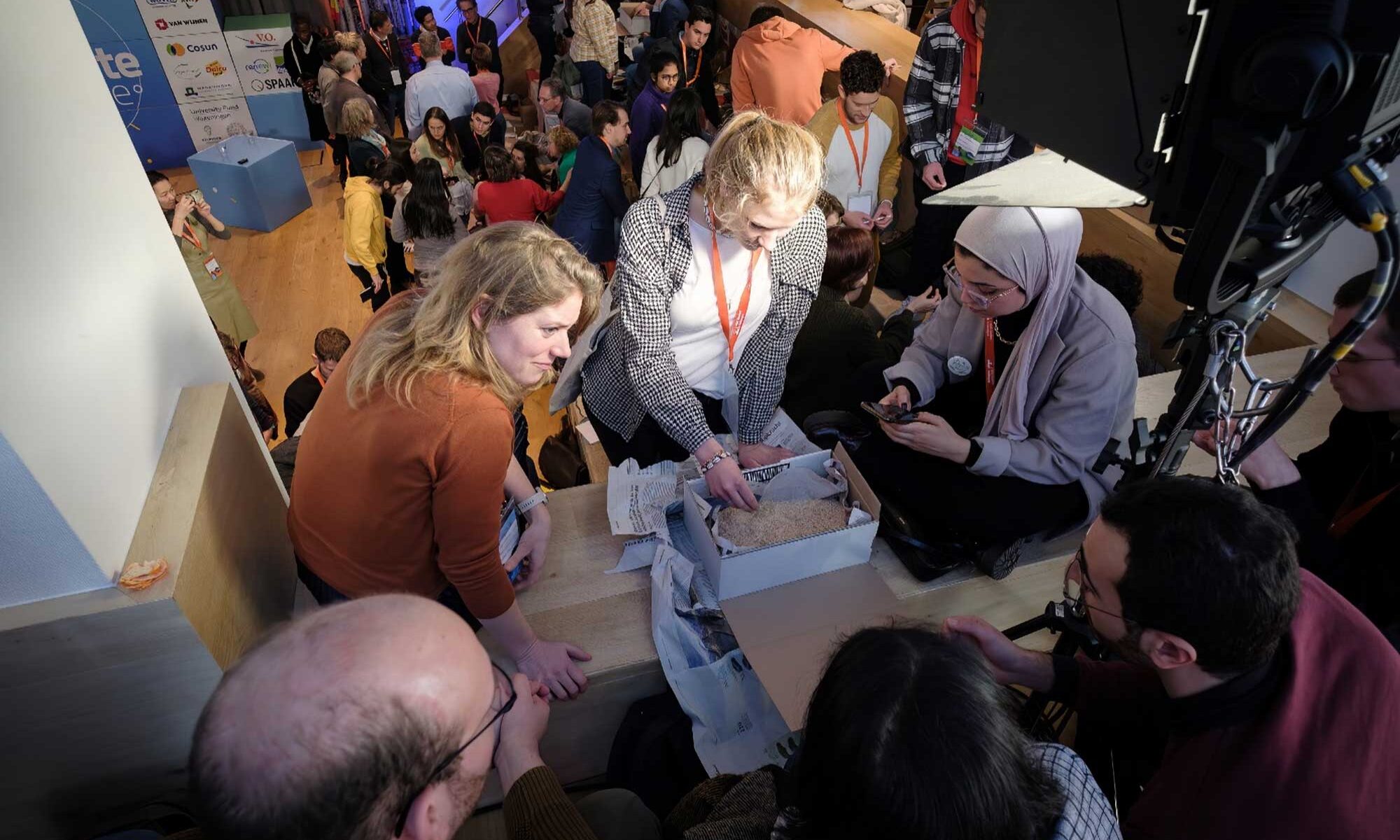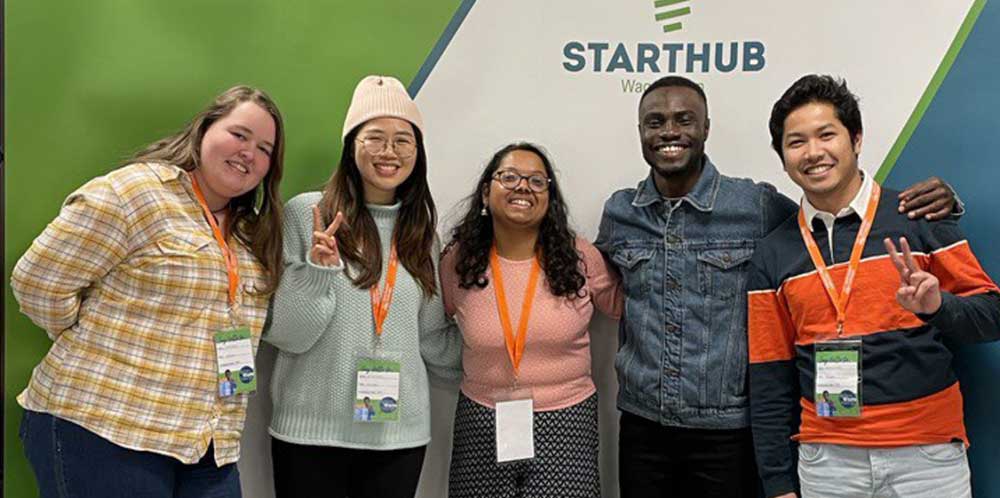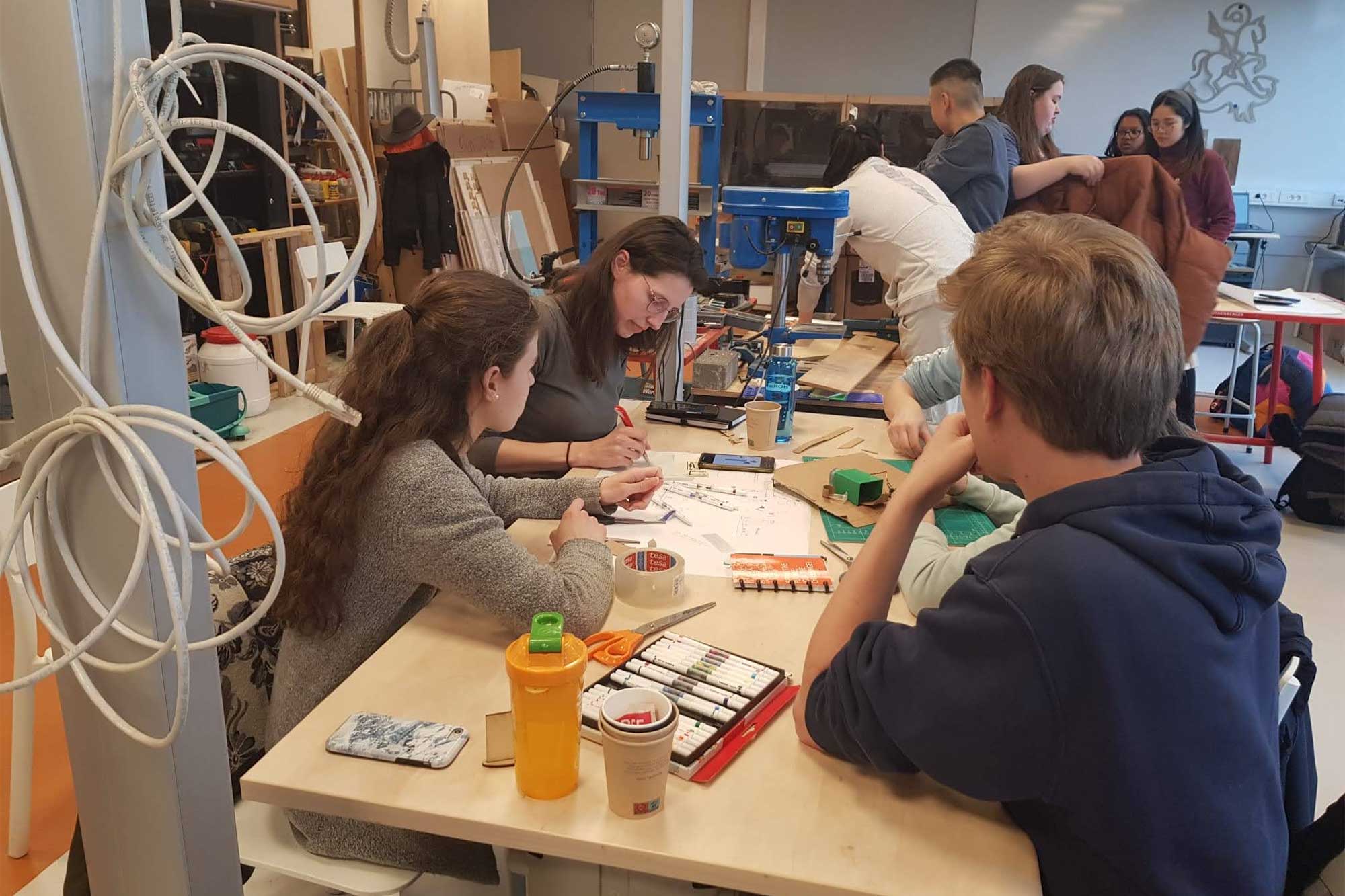Among these, Wageningen University and Research (WUR) has been instrumental to the energy and material transitions by sharing its expertise with the private sector. Barneveld-based Paperfoam is an example of this partnership. Paperfoam produces high quality packaging for phones and egg cartons out of natural fibers, starch and a “magic mix”. The final product is 40% lighter and production emits 90% less CO2 than traditional packaging.
More recently, WUR researchers developed a circular binding agent for asphalt from lignin (a side-stream of paper production) to substitute bitumen which is a crude-oil product. Currently this invention is used in 30 roads in the Netherlands and options to develop a fully lignin-based asphalt binder for European highways are being developed. This technology is also suitable in other applications such as roofing. Over the past 30 years, WUR has co-developed many new circular products such as circular packaging coatings, pet toys, planting pots, biobased car tires and green insulation materials. But also safe biobased and biodegradable alternatives to fossil based surfactants in shampoos to prevent microplastics finding their way to the environment. Of these, many are still in the market 10-20 years after launch.
With this proof of already many successful market introductions, the next step is scaling up. For this reason, a program for the National Growth Program addressing “BioBased Circular – BBC” is submitted to the Dutch government. The program focuses on scaling up and accelerating the development and production of circular plastic materials based on carbohydrate rich biomass to large scale applications in every day products such as food, packaging, furniture, building materials and coatings. The proposal includes also another key factor addressed by the participating companies: human capital.
Shifting the paradigm in education
WUR already offers the MSc study program “Biobased Sciences” specifically focusing on the transition from fossil fuel technologies to a circular economy, and numerous MOOC courses for professionals. However, according to Gerlinde van Vilsteren, Project manager Value Creation at WUR “no true transition to a fossil-free society is made if we leave the human factor aside. Changes in education, learning models and new types of transdisciplinary expertise are needed.”
Such experimental ways of learning are already been used for extracurricular program, such as the student competitions organized by WUR Student Challenges for students worldwide. This year the ReThink Waste Challenge is taking place on Wageningen Campus and online and involves 27 international student teams working on creative solutions to bring new solutions to the circular economy. One key aspect of this initiatives is collaboration between the students teams and a network of partners who coach the students through the process of developing a product. In addition, students learn about entrepreneurial skills and learn how to work in a multidisciplinary team by sharing their expertise and teaching others in an informal setting.
Muskan Mathur, lead of team Bridging Buildings and Bins (BB&B), thinks participation of partners set apart the ReThink Waste Challenge from other programs: “As students we are skilled in looking into literature and write about it”-says Mathur – “but partners constantly pushed us and ask us practical and insightful questions to push our innovative product idea to where it is. At the beginning of the challenge we wanted to create a sustainable insulating material from plum pits, but thanks to the expertise and guidance of our coaches, we realized it was not going to work and decided to start from scratch and use rapeseed stalk instead!”. Multidisciplinarity was also key to their process: “whenever I felt stuck or did not know how to do something, someone else in the team would step up and explained to me how.”
Multidisciplinarity also seems to be pivotal to the development of the new era of education for a biobased economy, as different professional profiles are needed to revolutionize the current industry. To put it in van Vilsteren’s words: “Developing a product is a start, but we also desperately require policy makers, designers and business model developers to make a biobased future a reality.”
The Grand Finals of the ReThink Waste Challenge will take place on 21 June at Wageningen Campus. It will include Innvovation Market with presentations from Challenge participants and partners and Award Ceremony with keynotes from prof. Cees Leeuwis (WUR) and Ugne Dirdaite (EU Bioeconomy Youth Ambassador). The event is open to everyone interested, more information and registration here.





